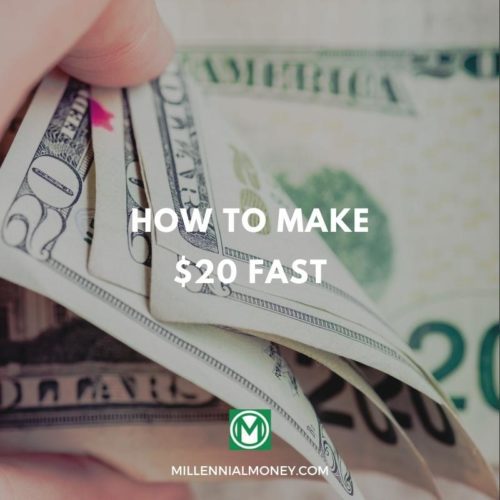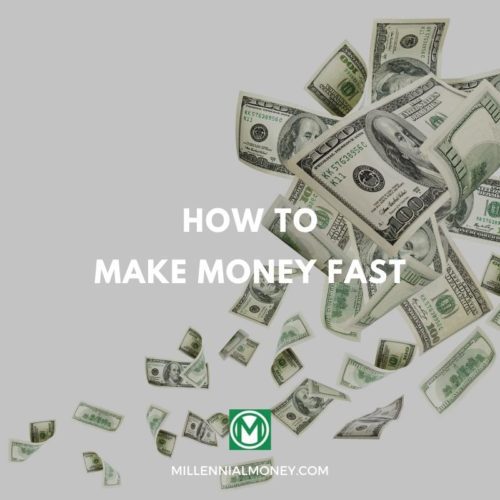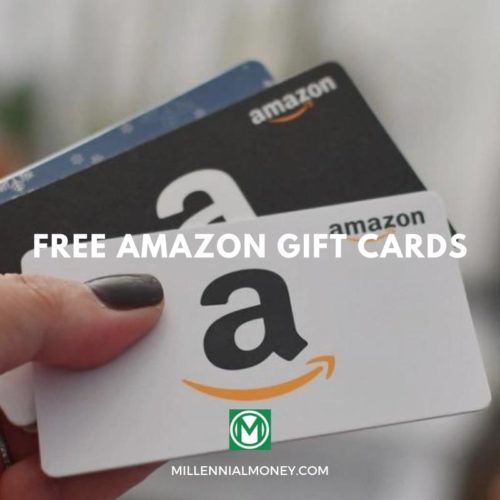Wondering where to cash in coins for free? While most places charge a fee to transfer coins into cash, there are some companies that let you cash coins in for free, saving you money.
Whether you’re deciding to cash coins in with a financial institution or at a supermarket, you definitely need to know how much of a percentage the company might take.
5 Best Places to Cash Coins for Free
Here are five places where you can access free coin counting and exchange services:
1. QuikTrip
QuikTrip owns a line of gas stations across 14 states, with more than 900 locations. If there’s a local store in your area, this is the first place you should head.
At the time of writing, QuikTrip isn’t charging any service fees for coin exchanges due to the national coin shortage. So, you could recoup 100% of your money without having to do any work except physically going into the gas station.
2. Bank of America
Bank of America does not charge a fee for customers to cash in their own coins. However, the bank does require customers to submit coins via coin rolls when cashing them in.
In other words, you can’t just dump a pile of coins on the desk and wait for the teller to manually sort them.
3. Wells Fargo
Wells Fargo is another bank that offers this service free of charge and also requires customers with bank accounts to use coin rolls.
4. US Bank
US Bank does not require customers to submit coins via rolls. You can submit coins free of charge, without having to go through the process of putting coins into paper holders.
Other banks that offer similar services include TD Bank, Chase, Capital One, and Citibank.
5. Credit Unions
Some credit unions also offer free coin exchange services for customers, and some even for non-customers.
American Eagle Federal Credit Union offers free coin exchanges for all consumers. The Westerra Credit Union is another organization that offers coin exchanges, but they are exclusive to members.
How to Wrap Coins
A lot of people have coins lying around. But most companies that let you cash in your coins require you to roll them up. This is where the process can get annoying.
If you’ve ever tried to stuff coins into paper wrappers, then you know how time-consuming and tedious the process is–especially if you’re dealing with multiple buckets containing a mix of coins. It could take you months to sit there and manually sort through them and stuff paper wrappers. Money costs time, so this approach is simply not worth it (unless, of course, you have a lot of time on your hands because of the pandemic).
Unfortunately, there’s no easy way around this. On one hand, you can buy a coin sorting machine like the Royal Sovereign model from Amazon, which costs about $33 at the time of writing. The main problem with this approach is that it will eat into your savings. You may not even have $33 sitting around in coins. So, it’s really only a good option for people who have a substantial amount of money lying around the house.
The fastest and cheapest option could be to bring your coin to a kiosk like Coinstar. While you’ll lose a sliver of your money, the self-checkout nature of the service means you’ll be able to convert your coins to cash quickly.
What is Coinstar?
Coinstar is a kiosk that allows people to dump large amounts of coins into a bucket and the machine takes care of the rest.
Coinstar makes the process incredibly easy, as you literally just have to pour the money into the machine and stand there while it goes to work. That’s plenty of time to check up on your investments on your phone or scan your bank statement. Of course, the more money you put into the machine, the longer it takes.
The thing to remember about Coinstar is that the machine takes 11.9% of your money. So, if you put $100 into the machine, you’ll only receive $88.10.
This may seem like a hefty fee. But compare it to spending time rolling pennies into coin wrappers or buying a coin machine.
Pro Tip: Avoid Coinstar’s Fee with eGift Cards
One way to avoid paying Coinstar’s 11.9% fee is to cash out using eGift Cards. This strategy lets you keep every penny you put into the machine.
If you take this approach, you’ll get a debit card with a unique code instead of cash from the Coinstar machine. This plastic card can be used as a voucher when shopping online or in stores.
It works just like cash in places like AMC, Amazon, the Apple Store, Steam, GameStop, Lowe’s, Starbucks, and The Home Depot, to name a few. Simply put, Amazon gift cards and Apple gift cards can be fun and rewarding.
Learn More:
Where to Find Coinstar Kiosks
Here’s a breakdown of some of the top retailers offering Coinstar kiosks.
- Walmart: Walmart has a network of more than 11,000 stores across the United States, so you should have no problem finding one with a Coinstar machine in your area.
- ShopRite: ShopRite is a smaller grocery store chain, but the company definitely has Coinstar machines.
- CVS: CVS is another retailer offering Coinstar access. Check your local CVS to make sure there is a Coinstar machine in it before stopping by.
- Target: Target also offers Coinstar machines for even more convenience.
Tips for Maximizing Your Change
Here are some things to consider to help you get the most out of your loose change.
Cut Down on Cash
As you can see, cashing in coins can be a real pain. This is why so many people have mountains of coins sitting in their closets in old coffee cans and bags. Coins are tough to get rid of and expensive to cash in.
The best thing to do is cut down on cash and only use it for emergency purposes. In doing so, you’ll experience a number of benefits.
First and foremost, cutting down on cash and using mobile banking or cards can give you more visibility into spending. It’s easy to spend recklessly when you use cash all the time.
Another reason to use less cash is that it’s prone to theft. Someone can steal a jar of coins much easier than they can hack your bank account.
What’s more, using less cash will help your money stay in the bank where it can collect interest, rather than sitting around the house where it can collect dust and lose value. Spare change can really add up, so this is important.
Finally, cutting down on cash is more sanitary. Money passes from person to person, gathering germs with every transaction.
Roll as You Spend
If you insist on taking the old-school approach and using cash throughout the day, then consider getting papers and rolling up your loose change at the end of every day or week.
By putting your money into paper rolls as you go along, you can prevent large sums of coins from accruing in a coin jar, making it easier and more cost-effective to cash in.
Use Your Coins
Let’s face it, it’s not always convenient to use coins. They’re bulky, dirty, and heavy. But they’re just as good as paper.
If you have a lot of coins sitting around, consider using them to pay for items like food, drinks, and transportation. People may look at you funny for dropping a pile of change when paying for your dinner, but who cares? It’s legal tender.
Use the Money to Pay Down Debt
One of the best ways to use spare change is to put the money towards credit card payments or student loans. Use the money to reduce your principal balance so that you spend less on interest in the long run.
If you don’t have any debt to pay down, consider putting your money into savings or an investment account.
Learn More:
Frequently Asked Questions
What is a coin counter?
Coin counting machines count money and make it easy to put the coins into paper wrappers for depositing them at banks.
The only problem with coin counters is that they cost money, which can eat into your profits if you’re trying to cash out.
For the best results, look for a cheap model you can use over time. Otherwise, it could make more sense to just visit a Coinstar machine every once in a while. It largely depends on how often you rack up spare change in your piggy bank.
What is the maximum amount you can put in a Coinstar machine?
Coinstar machines have a maximum limit of $2,000 per transaction. You could do multiple transactions from the same machine if needed. But that’s unlikely given the sheer volume of coins you’d need.
Do local banks provide coin exchange services?
Most banks provide coin exchange services, although some may charge you a fee to deposit coins. Check with the bank in advance to learn if there’s a free.
The Bottom Line
Sooner or later, you’re going to rack up a ton of change and need to cash it in either by smashing a piggy bank or filling up a change jar.
When you get a few months’ or years’ worth of coins saved up, you’re going to need a strategy for what to do with the money.
Fortunately, you have options. Use the above-mentioned tips and either turns the money into cash or spend the change. In some cases, the easiest thing to do is just part with the Coinstar fee. But only you can make this decision.
Whatever you decide, one thing is clear: It’s time to stop being comfortable as your coins collect dust and start figuring out how to put your spare change to work for you. With the right approach, who knows how much money your coins could turn into?





Read 2 comments or add your own
Read Comments